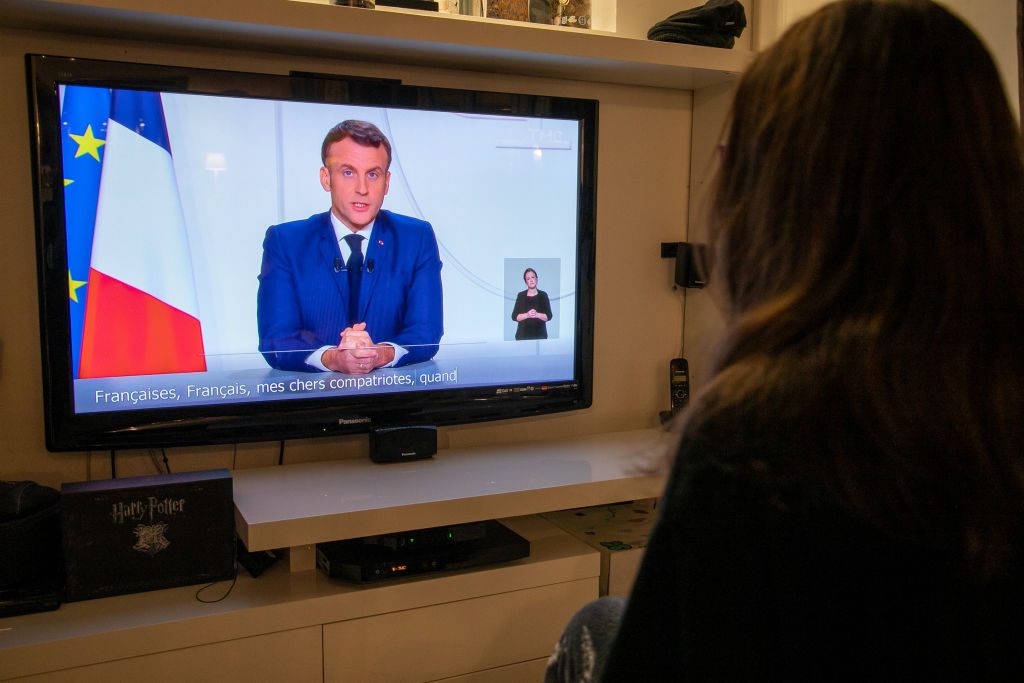Politics
France Will Begin Reopening Cultural Institutions, While Germany Considers Extending Its Lockdown
The varying strategies suggest the unpredictability of the health situation in Europe.

The varying strategies suggest the unpredictability of the health situation in Europe.

Kate Brown

French President Emmanuel Macron has announced a plan to slowly ease lockdown measures and begin reopening cultural institutions.
The two-step process will begin this weekend, with art galleries able to reopen on November 28. Museums, monuments, and theaters will be allowed to reopen on December 15. Restaurants and bars will remain closed until January 20.
“Culture is essential to our lives as free citizens,” Macron said in a televised address.
“I would like to thank all those involved in culture, to whom, I know, we have asked so much,” he added. “Those who have held firm, who have created, innovated, and found new audiences in this difficult context: we need them.”
On Saturday, bookshops, record stores, libraries, and art galleries will be allowed to reopen. Larger venues, such as museums, theaters, cinemas, and public monuments, can reopen December 15. But Macron warned that the easing of restrictions will last only if infection rates continue to decline.
A curfew of 9 p.m. will remain in place in France, though theater audiences leaving events in the evenings will be allowed to head home afterwards. Should they be stopped by the police, they will be asked to present their tickets.
The news of the ongoing curfew has its critics. Benoît Lavigne, the director of Lucernaire, a cultural center in Paris, told France Culture that 9 p.m. is “extremely early” for businesses that do most of their programming in the evening.
Meanwhile, Germany is expected to vote on new lockdown measures today, extending controls into December and tightening them in certain places.
No specific rules have been set for cultural institutions, but the German government has assured the cultural sector that financial support will be offered.
German vice chancellor Olaf Scholz said artists and performers would be among those who could receive benefits in December, saying the government should act “pragmatically, non-bureaucratically, and wisely.” Cultural institutions will likely also be offered bridge loans into 2021.
According to the media company Deutsche Welle, restaurants, gyms, and hotels will likely remain closed. A proposal to extend lockdown into December, with a small reprieve around the winter holidays, will be debated today.
During the November lockdown, some in the country’s cultural world were critical of arts organizations being treated the same as fitness studios and brothels, especially given the different hygiene protocols for such places. Galleries, categorized as retail spaces, were allowed to remain open.
In an interview on Tuesday with Berliner Morgenpost, culture minister Klaus Lederer was muted on the prospect of reopening cultural venues.
“I would be very pleased if we could at least create the possibility for children and young people to visit a theater or a cultural institution,” he said, reiterating that even if a vaccine is available by the end of the year, a return to “relative” normality will takes months.
In the UK, lockdown will be eased beginning on December 3 with a three-tiered system based on the rates of infection in different parts of the country. In areas deemed to be in tier two, or the medium-risk zone, museums and galleries will be able to open. In tier three, dubbed a high-risk area, museums and galleries must remain closed.